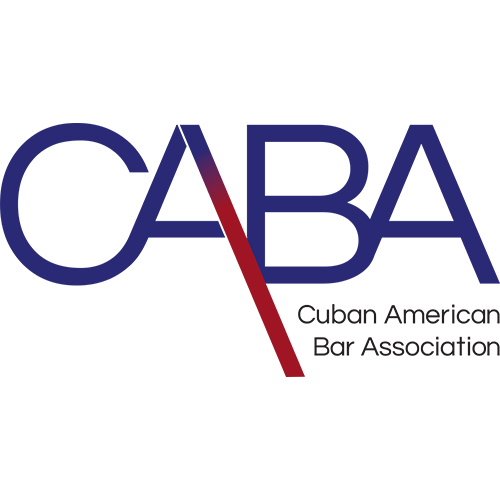Miami Boat Accident Lawyer
PROTECTING YOUR RIGHTS SINCE 1983
The boating accident injury attorneys at Bernstein & Maryanoff Injury Attorneys have the knowledge and experience necessary to get the maximum compensation for your boat accident injuries.
Boat Accidents and Injuries
According to the United States Coast Guard in 2002, more than 12.5 million boats and personal watercraft (PWC) were registered in the United States. In particular, the use of personal watercraft, such as Jet-Skis and other brands, has exploded since the ’90s. Not surprisingly, the United States Coast Guard also reports that each year there are more than 8,000 boating accidents that result in more than 4,000 serious injuries and 800 deaths.
If you have suffered an injury on a boat while boating or while engaged in other water sport activities, you should consult a personal injury attorney who has experience handling such claims as soon as possible after the accident. The laws that apply to injuries that occur on and around the water are complex and there are several questions that must be analyzed in order to correctly to determine the value of a boating injury claim. For example, does state negligence law, federal maritime law or both control the claim and the amount of damages that can be recovered? Who is the responsible party? Is the cause of action against the owner for negligent operation? Did the vessel malfunction creating an actionable product liability claim against the manufacturer, as with personal watercraft? Consult with an experienced attorney.
Leading Causes of Boating Accidents
Florida is home to thousands of regular boaters, and anyone who wants to spend some time at sea has a plethora of choices that range from lakes to rivers to the ocean to the Gulf of Mexico. While the types of bodies of water may differ in Florida, the causes of Florida boating accidents remain alarmingly consistent. Below you’ll find a brief overview of some of the leading causes of these incidents, and if you or someone you love has been harmed in such a circumstance you need to seek the help of experienced Florida boating accident lawyers as soon as possible
Common Reasons to Seek A Boating Accident Injury Attorney
Operator Inattention
Operating a boat is not much different than driving a vehicle on the road in terms of the focus that’s required of the person behind the wheel. As such, a lapse in attention of even one second can prove to be dangerous if not deadly, which is why operator inattention has consistently ranked as the leading cause of Florida boating accidents in recent years.
Lack of a Proper Look-Out
Vessels on the water need more than one set of eyes fixed on the surrounding sea so that potential problems can be spotted and the person operating the boat can take appropriate measures in response. When a vessel is not making use of a look-out, the safety of those onboard is limited to the field of vision of the operator. Failing to use a look-out is always near the top of the list of causes of Florida boating accidents.
Excessive Speed
As is the case with vehicles on Florida’s roadways, boat operators tend to speed regularly. When boat operators are traveling at a rate of speed that’s too high, it reduces the margin of error that any operator has at his or her disposal, and engaging in such conduct only raises the likelihood that a crash will occur.
Alcohol
Perhaps the most daunting entry on the list of leading causes of Florida boating accidents is the use of alcohol by those who operate these vessels, specifically because this conduct is so preventable. Alcohol use leads to the same lack of judgment and slower reaction times on water as it does on land, and it also leads to a high number of accidents as a result of its use by those who are supposed to safely navigate any boat.
Alcohol
Generally, the legal issues are similar to other personal injury claims issues such as questions related to negligence, causation and damages. But before those questions can be answered, it must first be determined which law will control the case – federal maritime law or state tort law. The differences between federal maritime law and state tort law are significant and sometimes determine the outcome of the case. Only an attorney who regularly handles boating injury cases has the experience to sort through the complexity to maximize the monetary recovery.
Traditionally, maritime law applied only to commercial and ocean-going vessels. More and more recreational vehicles involved in accidents meet the conditions that trigger maritime law. If the accident occurs on “navigable waters” and there is a relationship between the accident and traditional maritime activities, the maritime law will govern regardless of the type of vessel. The legal system refers to these conditions as the “locality tests” and a “nexus test.” Read our article “Maritime Law” for a more comprehensive description.
The Jones Act
Boating accidents injure a variety of people who work on a boat, or ship. For instance, skippers, engineers, deckhands, seamen, galley workers, fishermen, crabbers, on-board seafood processors, ferry workers, and tug & barge hands have rights under maritime law. Oil rig workers, longshoremen, and ship repairers have maritime rights. The Jones Act is a federal law that extends the provisions of the Federal Employers’ Liability Act (FELA), a statute that provides remedies for injured workers, in order to provide similar remedies for seamen.
If an injured crew member can prove even the slightest negligence by the employer, then the injured worker may recover a monetary award for pain, suffering and disability, and future medical benefits.
Rights of a Person Injured on or by Watercraft
The potential claims of a person injured by a watercraft are determined by the category: seaman, social guest, business visitor, or bystander/swimmer/water skier. The category also determines the legal rules that will be applied to your claim.
RELATED: Miami Cruise Ship Accident Tips
Social Guests, Business Visitors, and Bystanders
Most people injured on and around boats are categorized as a social guest. These claims will be determined by general maritime law and state law principles of negligence.
It is a general rule of law that the operator of a boat and its owner has a duty to exercise a reasonable degree of care in order to prevent injuries to others. The most common boating accidents are collisions with other boats, slip and falls on the boat, sinking and boat disappearance. Boating injuries usually occur because of a reckless or careless operator, boat malfunctions or an inexperienced operator.
Operators of boats, like operators of cars, have a legal obligation to operate their watercraft in a safe manner. The overwhelming majority of boating accidents are caused by factors that can be controlled by the operator of the boat. In 2002, for example, the primary cause of boating accidents nationwide was operator inattention, followed by a careless/reckless operation, operator inexperience, operating at an unsafe speed, and failure to have a proper lookout.
Common violations of the duty of ordinary care in a maritime setting include a failure to warn against foreseeable harm, violations of “rules of the water,” such as excessive speed, failure to have proper lights, failure to yield, intoxication and others. Owners may also be held liable under the theory of vicarious liability. For example, an owner may be held liable for an operator’s failure to warn passengers of intended maneuvers, overloading the boating, or permitting the guest to sit in a dangerous position.
Generally, the same duty of care that applies to social guests also applies to business visitors. Under the “inherent risk” doctrine, however, repairmen who are on the vessel to remedy a specific problem or defect take on a different risk. The law expects them to be aware of the risks inherent in the repair. For example, the owner does not have a duty to protect a repairman from the risk of fire due to a spark in the engine if the repairman is on board to fix the spark plugs in the engine.
Accidents involving bystanders, such as swimmers or water skiers, are typically treated in the same manner as cases involving social guests. The law and courts where the accident occurred will generally control any lawsuits brought by injured bystanders unless there is a basis to assert admiralty jurisdiction.
Product Liability Claims – Personal Watercraft Such as Jet Skis
Although most boating accidents occur due to the boat operator’s negligence or recklessness, some boating accidents are caused by a defect of the boat itself. In 2002, for example, 282 boating accidents occurred due to some type of failure of either the boat’s machinery or its hull (the body of the vessel). When an injury results because of a defective or dangerous condition of a boat, the injured person may have a products liability case against the manufacturer of the boat.
The manufacturers of personal watercraft have faced numerous product liability claims during the last decade. The claims allege that a manufacturer design defect makes the watercraft unreasonably dangerous when used in a “foreseeable manner.” A foreseeable use argument alleges the manufacturer could clearly foresee the use of their products by young and inexperienced operators, especially given the manner in which manufacturers market the products.
When a water-related accident occurs, a thorough investigation and evaluation of its cause(s) by an experienced legal team is best. Complex legal and safety issues may be involved. If you have been injured on a boat, contact an attorney who has experience handling boat accident and injury claims.





